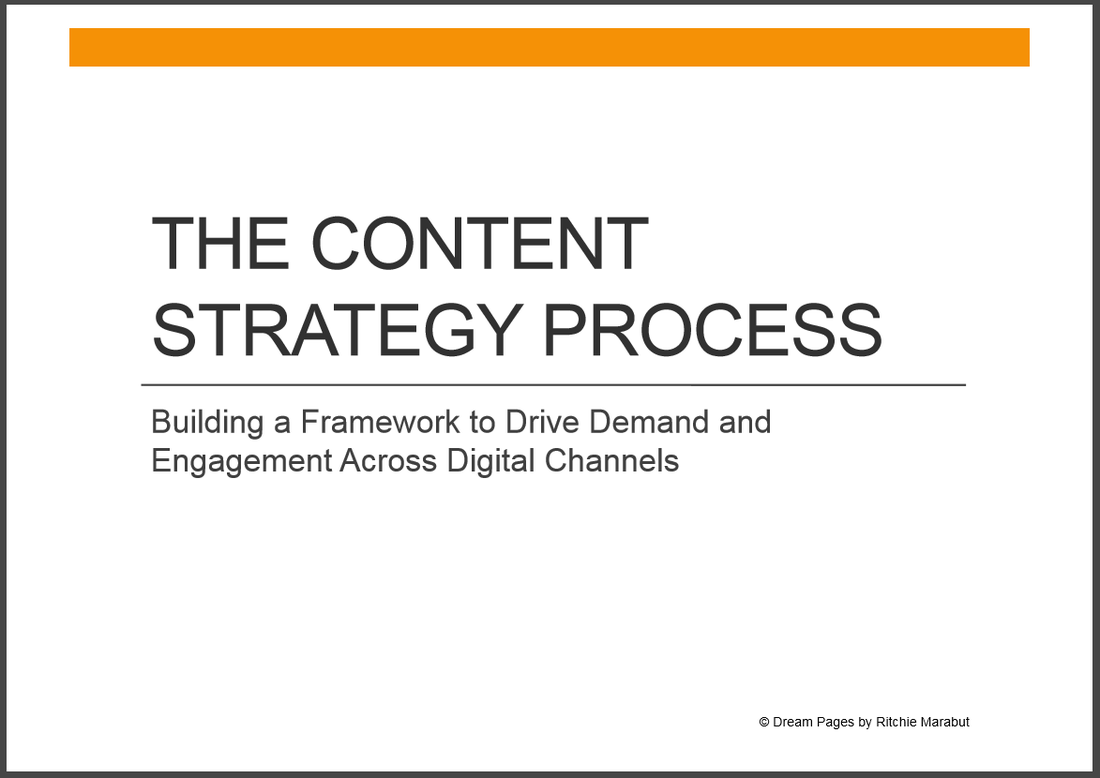|
We all know the importance of content. It communicates your message and develops your brand. It builds relationships and engages your target audience. Content also helps improve your search rankings for relevant keywords. In content marketing, it can encourage people to take the desired action or even move them closer to a purchasing decision. Content can really be powerful. That is why a lot of businesses have started building their content assets – writing blogs, producing videos and ebooks, creating infographics, and building up their social media platforms. With all these content pieces – how do you know if you’re still achieving your business objectives?
Without guidance and proper planning, content just becomes a big gamble. You could be spending a lot of time, effort and even money in developing your content masterpieces – without knowing if they will properly communicate your brand story, connect with your target customers, or help achieve your goals. This is where content strategy comes in. So, what is content strategy? According to Kristina Halvorson, “Content strategy plans for the creation, publication and governance of useful, usable content.” It aims to guide all content planning, production, marketing, and measurement – across all channels. It provides direction for all content initiatives. This is similar to a business start-up where you begin with the business plan. And every business plan starts out with defining the company purpose or mission. This process cannot be skipped. It is an essential part of building a business. The company’s purpose is also fundamental in the ongoing strategic planning process – making sure that the company grows and moves in the right direction. Content strategy operates in the same way. It guides all your content initiatives and establishes a sense of purpose for every piece of content your business produces. It establishes a central theme. Without a content strategy, there is no overall plan to drive content creation - no common objectives and messaging. Varying messages go out, which can confuse the market. Content is, therefore, reactive and becomes just an afterthought. Content strategy establishes a central theme that unifies all elements to deliver a common message across channels and fulfil common goals. Content then becomes more strategic and a lot more proactive. It looks at the big picture. Content strategy allows your business to step back and look at the big picture – your goals, vision, customers, competition, technologies, and even topics and trends. It enables you to determine the best approach to gain the greatest impact and maximum results. The objective is not just to produce as much content as possible. It is to produce the right content with the right message using the right content type, and communicating to the right audience across the right channels. It reviews your current content and finds the best way to move forward. A content audit is an essential part of the content strategy process. It reviews every piece of content and tries to answer the question: “What do we have and what do we need?” Conducting a content audit determines what needs to be improved, repurposed or developed – based on the needs and preferences of customers at each stage of the buying cycle. It also identifies any ‘gaps’ within the content mix, and maps out ongoing content development. It guides your content marketing program. Do you have a documented content strategy to guide your content and digital marketing efforts? Many businesses jump straight into developing and promoting content, without taking the time to develop and document a content strategy. I say it again – without guidance and proper planning, content becomes a gamble. “A documented content marketing strategy influences overall effectiveness: 73% of the most effective content marketers have a documented strategy.” – Content Marketing in Australia 2016: Benchmarks, Budgets, and Trends To be effective, your content marketing plan needs to be directed by an overarching content strategy. It creates a standard process for production and governance. Content strategy creates a content workflow that streamlines the production and approval process. It answers the questions that need to be addressed:
It measures performance. How do you know if your content is working? Without a content strategy, there is no way of figuring out what works and what doesn’t. Engagement and ROI become impossible to measure. Content strategy helps develop clear metrics to track and measure performance – against your marketing and overall business goals. With these metrics in place, you are able to properly report on what content pieces are working, engaging with your target audience and driving leads / sales. Content Strategy is essential to the success of your digital business. Finally, I believe a content strategy is essential to the success of your business. It encourages you to think about and focus on the content that you produce for your website, blog and social channels. It also helps you be more strategic in your content production and marketing. Contact us if you want to learn more or need help in developing and documenting a content strategy for your business. Comments are closed.
|
Details
About Dream PagesWe help your business develop targeted & purpose-driven content across channels & at every stage of the buying cycle. Learn more Need help with your content strategy?Download The Content Strategy Process to learn more about our approach. |
© 2020 Dream Pages by Ritchie Marabut. All Rights Reserved.



 RSS Feed
RSS Feed